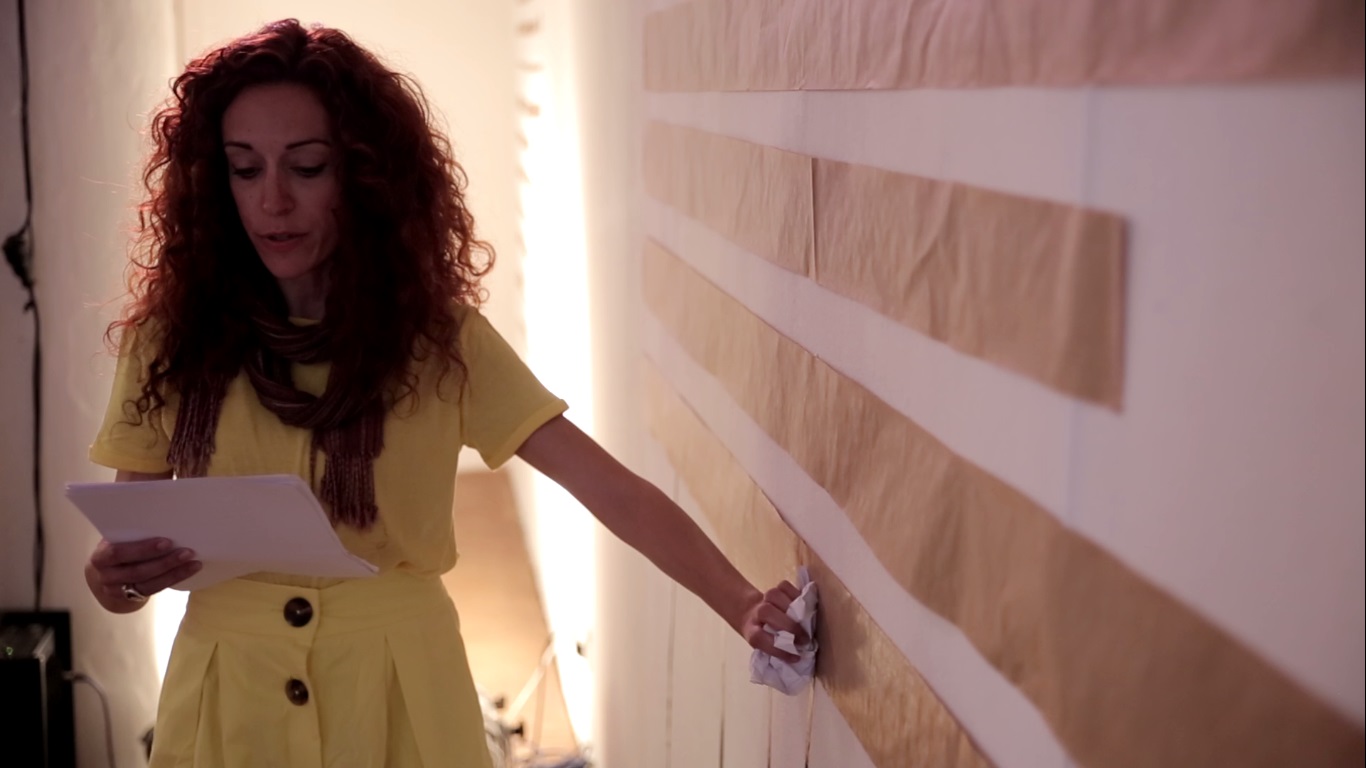Termin Informationen:
-
Sa14Dez201920:00Eintritt 5€
Genesis of a Language
Performance mit Stimme, Gesten und visuellen Elementen von Violaine Lochu und Tomomi Adachi

© Valérie Sonnier Violaine Lochu is a performance artist working with language and voice. As her debut in Berlin, she presents a new working progress performance with a Berlin-based sound poet, performer/composer, Tomomi Adachi after their residency in Lettrétage. Lochu performs her solo work, Babel Babel as the first part.
Violaine Lochu and Tomomi Adachi are developing their works around voice, gesture and language. The practices of them evolve in the fields of sound poetry, music and contemporary art and they use different types of media as performances, texts, sound installations. This project is placed among poetry, music and theater. In this project, they will invent a metalanguage which is developed through their collaborative process.
This metalanguage would be developed through three media; voice, gesture and writing. The concept of the metalanguage is inspired by some linguistic contexts which already we know; sign language used by North American Indians to communicate between tribes, Lingua franca as Sabir and artificial international language like Esperanto, in addition, graphic transcriptions of animal languages.
This new language will be integrated as a theatrical performance with voice and gestures, and also the graphical aspect will be involved in the performance.
An additional program as the first part of the event: a short version of Babel Babel by Violaine Lochu, solo performance, 35 min.
From the age of three months, a child begins to babble: in a purely physical and perceptive game, they explore the possibilities of their vocal apparatus. The sounds that they emit are not necessarily addressed to anyone, nor attempts to convey any particular meaning. Babel Babel is a performance composed using recordings of children’s babbling made in crèches in Seine-Saint-Denis and in Moselle since 2016. Violaine Lochu reworks, displaces and loops this sonic material to reveal the richness of the different sonic states of babbling, this forerunner of language that brings to mind imaginary and distant idioms, and even non-human expressions of the pure pleasure of speech, close to poetry.
Violaine Lochu's (photo s. oben) work is an exploration of voice as a vehicle for encounter and metamorphosis. During periods of immersion in specific contexts, she collects sound and visual materials from which she creates performances, sound installations, videos and publications. Her practice is transdisciplinary; situated within the field of contemporary art, it involves music, as well as theater or sound poetry.
Laureate of the Aware Prize (Archive Women Archives of Women Artists Research and Exhibitions), she performed in Centre Pompidou, Palais de Tokyo, Contemporary Art Center of Geneva in Switzerland, Gallery Kunsterein of Munich in Germany, Gallery GAMU at Prague in Czech Republic, Theatre le 4e art of Tunis in Tunisia. She made part of collective exhibitions in MAC Lyon in France, Ferenczi museumi centrum in Hungary, in Art Center Le Centre at Cotonou in Benin, Justina M. Barnicke Gallery at Toronto in Canada.

Tomomi Adachi is a performer/composer, sound poet, instrument builder and visual artist. Known for his versatile style, he has performed his own voice and electronics pieces, sound poetry, improvised music and contemporary music, also presented site-specific compositions, compositions for classical ensembles, choir pieces for untrained musicians in all over the world including Tate Modern, Maerzmusik, Hamburger Bahnhof Museum, Centre Pompidou, Poesiefestival Berlin and Palais de Tokyo. He has been working with a wide range of materials; self-made physical interfaces and instruments, artificial intelligence, brainwave, artificial satellite, twitter texts, 3D printer, fracture and even paranormal phenomenas. He was a guest of the Artists-in-Berlin Program of the DAAD for 2012. He received the Award of Distinction from Ars Electronica 2019.
